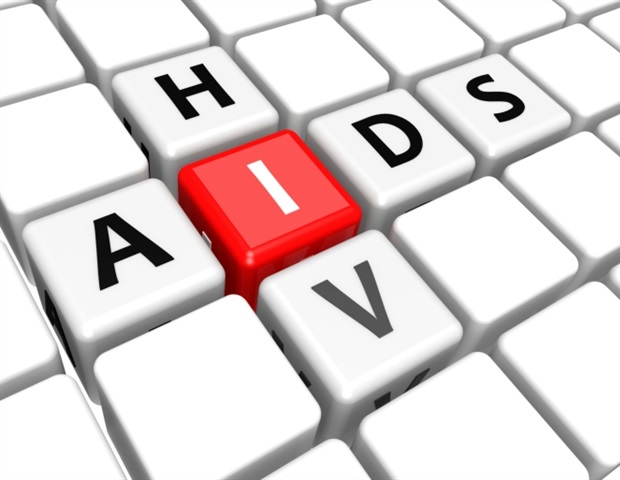Analysis at Weill Cornell Medication means that childhood immunization in opposition to HIV might someday present safety earlier than threat of contracting this doubtlessly deadly an infection dramatically will increase in adolescence.
The examine, printed Aug. 30 in Science Immunology, demonstrated {that a} collection of six vaccinations containing a modified protein from the floor of HIV particles stimulated preliminary steps of a potent immune response in younger non-human primates. This difficult-to-achieve response represents an vital step towards offering full and doubtlessly life-long safety in opposition to the virus, the researchers say.
Immunizing younger kids, relatively than adults, is sensible as a result of threat components for HIV an infection rise steeply when adolescents change into sexually lively, based on senior writer Dr. Sallie Permar, the Nancy C. Paduano Professor in Pediatrics and chair of the Division of Pediatrics at Weill Cornell Medication.
What’s extra, proof means that the immune programs of infants and youngsters typically mount more practical responses to the virus than these of adults. One of many developments we have made is to exhibit that an HIV vaccine might be delivered on a schedule just like routine vaccines already given to infants and youngsters.”
Dr. Sallie Permar, the Nancy C. Paduano Professor in Pediatrics and chair of the Division of Pediatrics at Weill Cornell Medication
Prepping the immune system early
HIV predominantly infects immune cells known as CD4 T cells, leaving people weak to opportunistic illnesses. With out lifelong therapy, an infection is deadly. In 2022, an estimated 140,000 adolescents between 10 and 19 years outdated worldwide turned contaminated with the virus—a bunch that’s overrepresented within the variety of new infections.
Vaccine researchers are searching for methods to stimulate the immune system to make “broadly neutralizing antibodies” in opposition to the virus earlier than an individual is uncovered to it. These antibodies assault a vital a part of the HIV virus—the protein on its floor that binds to CD4 T cells. In doing so, broadly neutralizing antibodies forestall many strains of HIV from getting into the cell and infecting it.
On this examine, the researchers began with an experimental vaccine developed beforehand from spike proteins on the envelope of HIV particles. Examine authors Dr. John Moore, a professor of microbiology and immunology, and Dr. Rogier Sanders, an adjunct affiliate professor of analysis in microbiology and immunology at Weill Cornell Medication and a professor at Amsterdam UMC, sought to enhance this vaccine by altering the viral protein. They designed these adjustments to stimulate a selected set of antibody-producing B cells that defend CD4 T cells.
“An efficient HIV vaccine wants to interact the best set of B cells in an effort to generate a broadly protecting response,” mentioned first writer Dr. Ashley Nelson, an assistant professor of immunology analysis in pediatrics at Weill Cornell Medication. “We found that introducing sure mutations into the envelope protein might accomplish that within the setting of a naïve immune system.”
Activating the best B cells for defense
The researchers administered the modified vaccine to 5 younger primates in three priming doses, beginning lower than per week after delivery. They adopted up with three doses of the vaccine matching the unique HIV envelope protein, with the final dose given when the animals reached 78 weeks outdated, roughly equal to 4 or 5 years outdated for a human. As a management, 5 animals obtained all six doses of the unique envelope protein vaccine.
“Whereas publicity to the modified protein acquired the immune response began off in the best route, booster pictures containing the unique model of the viral protein have been vital to succeed in full potential,” Dr. Nelson mentioned.
Three of the 5 animals who obtained the modified model of the priming vaccine developed antibodies that gave the impression to be precursors to the sought-after broadly neutralizing response. Assessments steered these antibodies attacked the location the virus makes use of to invade CD4 T cells. Nonetheless, they weren’t but absolutely efficient in opposition to the identical breadth of HIV strains as mature broadly neutralizing antibodies. One of many three animals additionally confirmed indicators of creating the mature, broadly neutralizing response.
The subsequent step is determining tips on how to reliably elicit a full-on broadly neutralizing response, Dr. Nelson mentioned. “We nonetheless must determine the best mixture of viral proteins to get us additional down that path, ranging from the earliest levels in life when multi-dose vaccines are generally given.”
Supply:
Journal reference:
Nelson, A. N., et al. (2024) Immunization with germ line–focusing on SOSIP trimers elicits broadly neutralizing antibody precursors in toddler macaques.Science Immunology. doi.org/10.1126/sciimmunol.adm7097.

0 Comments